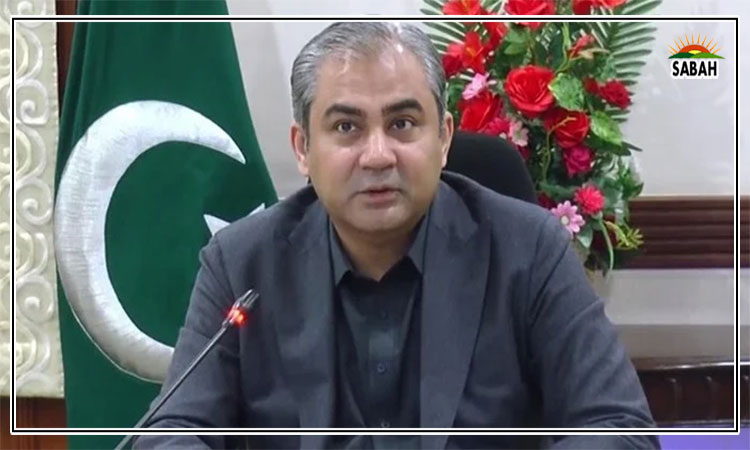What’s worrying you, really?…Ghazi Salahuddin
Let me suggest a little exercise that may help you sort out your thoughts and feelings about the existing state of affairs in the country. Pick out just one incident or headline or personal experience that you think would illustrate the national drift and then make an attempt to study it in detail.
I have in mind the events of the past week or ten days. These have surely been very hectic days, with so much happening on many different fronts. Several developments are bound to have consequences. This means that the temperature is likely to continue to rise.
This could also be a parlour game, every person in a group selecting their own example of what they believe to be the main cause of our almost universal loss of hope for the future. A confused, sweeping and rehearsed litany of grievances should not be enough. We need to look carefully at every move made on the chessboard and wait for what chance the stars and unforeseen calamities can deliver.
There was that bitterly contested public meeting of the PTI on Sunday last. The tactics adopted by the administration to try to undermine it could be expected. But the nighttime arrests made from the premises of parliament led to some unexpected developments, including a welcome initiative to draft a bipartisan charter to induct a sense of decorum and civility in the parliamentary process.
A separate episode in the political theatre was portrayed by Ali Amin Gandapur, the PTIs firebrand chief minister of Khyber Pakhtunkhwa. There are messages in what he said and how he behaved and these messages may gradually be decoded. We have some clips of the speech he made in the public meeting. What he said about journalists and the commotion it caused is not as important as the banner of defiance that he has raised. Also crucial is the approval for this stance that Imran Khan conveyed from his prison.
Gandapur has provided enough material for a cinematic thriller. On Wednesday, addressing a gathering of lawyers in Peshawar, he came out all guns blazing against the powers that be, as a published report said. This seemed strange because he had become incommunicado for long hours after the public meeting on Sunday night and was reported to be in a session with the high officials of the security establishment. What is the PTIs or the establishments game plan?
This entire political scenario has characteristically overwhelmed the media. Add to this the excitement of how the retirement age of the judges of the superior courts is to be extended through a constitutional amendment. So, has the ruling coalition secured the magic number in parliament?
In any case, little attention has been paid to incidents that, if you look closely, have a much larger bearing on Pakistans society and its future. The violence that is generated by religious extremism and intolerance is indeed so frequent that it is neither extensively reported nor seriously discussed in talk shows that do not tire of chewing the political cud.
Anyhow, a policeman gunned down a blasphemy suspect at a police station in Quetta on Thursday. Just think of the gravity of this incident and if you look at it against the backdrop of what has repeatedly been happening in Pakistan, it will become difficult to even imagine that Pakistan is a civilized country.
Why I say this is the fact that the policeman who murdered a suspect who was legally under police protection was widely eulogized for what he had done. Awards were announced for him by some religious leaders. By any standards, this was a very, very important story. But in how many talks shows or private groups did they discuss this tragedy and analyze the reasons why the passions that had motivated the Quetta policeman are not subsiding but gaining strength?
Take the case of the strong resistance to the polio campaign in large areas of Khyber Pakhtunkhwa and we stand out in the world in this respect. In Bajaur, a police officer and a polio worker were shot dead by gunmen on motorcycles on Wednesday. This area is known to be a stronghold of the Pakistani Taliban. In Jacobabad in Sindh, a polio worker testified before a court on Friday that she had been raped while on duty.
Anniversaries were observed on Wednesday, September 11. How many of us had any time to remember the Baldia fire in Karachi on this day in 2012 in which as many as 260 persons were burnt alive? How many citizens of Karachi had commiserated with the families of the victims?
I have previously compared this with a similar tragedy that happened in New York in 1911. As many as 148 persons, most of them women, had died in a garment factory fire. A large part of the citys population attended the funeral procession. Laws were changed. Documentaries and even feature films have been made on the tragedy. Books have been written.
I can go on with more examples of what is happening in Pakistan in different sectors such as health, education and administration. But we do not try to find the relevant facts about these issues. In fact, it would be interesting to make a list of Pakistans inconvenient truths and put them in the context of what we think about the overall situation. We have to relate them to our own hopes, fears and aspirations.
My point is that there usually are fleeting glimpses of reality in our media. But all we need is to open our eyes and look around. There may be something that restores your faith in the future of this society or something that breaks your heart. In any case, one needs to be more involved, more thoughtful about changes that are affecting our lives.
Coming back to what I had suggested at the outset, can you find one specific news or development on, say, a weekly basis that may reflect for you the reality of Pakistan?
The writer is a senior journalist. He can be reached at: ghazi_salahuddin@hotmail.com
Courtesy The News












